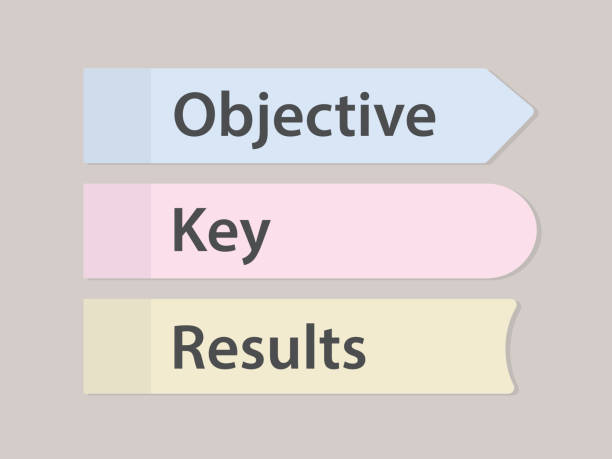In the ever-changing world of professional accounting, updates to educational frameworks aren’t just routine—they’re vital lifelines that keep professionals sharp and industries thriving. This article dives deep into the purpose and Rationale behind the recent ICAG syllabus overhaul for 2024-2029, exploring why it matters now more than ever for aspiring chartered accountants in Ghana. To set the context, let’s touch on the broader picture from the Overview of ICAG Professional Qualification Syllabus 2024-2029, which breaks down the syllabus’s overall structure, including its three-tier levels—Knowledge, Application to Professional—and key subjects like financial reporting and advanced taxation. That piece lays out the nuts and bolts of what students will encounter, from exam formats to progression rules, giving a bird’s-eye view of how ICAG is modernizing training. Here, though, we’ll zero in on the driving forces and logic that shaped this update, shedding light on its strategic intent without rehashing the syllabus details.
Tracing the Evolution of ICAG’s Educational Approach

The Institute of Chartered Accountants Ghana (ICAG) didn’t wake up one day and decide on a syllabus refresh for kicks; it’s part of a longstanding commitment to excellence that dates back to its establishment in 1963. Over the decades, ICAG has periodically revised its curriculum to mirror Ghana’s economic growth, from post-independence reforms to the digital disruptions of the 21st century. The last major tweak came around 2015, focusing on basic alignments with global norms, but by 2023, cracks were showing. Rapid advancements in technology, shifting regulatory demands, and a global emphasis on sustainability made the old framework feel a bit dated. Enter the 2024-2029 update: it’s not a patch job but a comprehensive rethink, driven by the need to produce accountants who aren’t just number-crunchers but strategic thinkers ready for real-world chaos.
Think about it—Ghana’s economy has boomed with oil discoveries, fintech explosions, and public sector overhauls. Yet, accountants were still training under syllabi that skimmed over blockchain or ESG reporting. The update addresses this head-on, ensuring graduates can tackle everything from tax evasion in the mining sector to audit risks in digital banking. It’s a response to feedback from employers, regulators, and even international bodies like the International Federation of Accountants (IFAC), who flagged the need for more robust, future-proof training. Without this evolution, ICAG risks churning out professionals ill-equipped for the complexities of modern finance, which could ripple into broader economic inefficiencies.
Understanding the Core Purpose and Rationale of the Syllabus Update

At its heart, the purpose and rationale of this ICAG syllabus update boil down to forging competent, ethical professionals who can shoulder the weight of accounting responsibilities in businesses, government, and beyond. ICAG spells it out clearly: accountants must add tangible value to organizations, uphold public interest, master technical skills, apply knowledge in practical settings, grasp sector-specific nuances, and always act with integrity, skepticism, and sound judgment.icagh.org This isn’t fluffy rhetoric; it’s a blueprint for turning students into advisors who influence decisions at the highest levels.
Why now? The rationale ties directly to global and local pressures. For starters, technology’s relentless march—AI, machine learning, digital currencies—has revolutionized how data is handled, audited, and reported. The old syllabus touched on basics, but this one integrates them deeply, ensuring accountants aren’t left behind in a world where algorithms do the heavy lifting. Then there’s sustainability: with climate change hitting Africa’s economies hard, ESG factors and integrated reporting are no longer optional. The update embeds these to prepare pros for advising on green finance or carbon taxation.
On the regulatory front, Ghana’s alignment with international standards like IFRS and IPSAS demands accountants who can navigate complex compliance. Public sector reforms, including the GIFMIS platform and PEFA frameworks, add another layer, pushing for expertise in government financial management. Ethically, the rationale emphasizes lifelong commitment, weaving professional skepticism into every module to combat fraud and bias. Ultimately, this update isn’t about change for change’s sake; it’s about relevance—making sure ICAG qualifications hold water internationally while rooting deeply in Ghana’s context, boosting mutual recognition with bodies like ACCA or CPA networks.
Key Objectives Fueling the Purpose and Rationale

Diving deeper, the objectives of this syllabus revamp align tightly with its purpose and rationale, aiming to build a ladder of competencies that escalates from basics to mastery. First off, it seeks to instill technical prowess through a competency-based framework, using Bloom’s taxonomy to progress from “identify and explain” at entry levels to “analyze, evaluate, and advise” at advanced stages. This ensures students don’t just memorize; they apply concepts in messy, real-life scenarios, like valuing a business amid economic volatility or auditing a public entity’s sustainability claims.
Another big objective is fostering ethical resilience. Ethics isn’t bolted on as an afterthought—it’s infused throughout, teaching candidates to spot dilemmas, exercise judgment, and prioritize public good. This rationale stems from high-profile scandals worldwide, where lapses in skepticism led to disasters; ICAG wants its grads to be the antidote. Lifelong learning is key too, with mandates for ongoing professional development in areas like communication, decision-making, and teamwork. The update also mandates 450 days of work experience under supervised training, bridging theory and practice to produce well-rounded pros.
Localization plays a huge role in the objectives. While benchmarking against IFAC’s International Education Standards (IES), the syllabus tailors content to Ghana’s needs—think natural resource taxation or public sector finance peculiarities. This dual focus strengthens employability at home while opening doors abroad. Platforms like Knowsia.com, with their AI-driven practice tools and expert content, can complement this by offering targeted prep for these objectives, helping students master the nuances without the grind.
Structural Shifts: How the Update Reinforces Its Intent

The syllabus’s new architecture is a masterstroke in supporting its purpose and rationale. Gone are vague progressions; now it’s a crisp three-tier system: Knowledge Level for foundations, Application Level for practical deployment, and Professional Level for strategic depth. At Knowledge, you get essentials like financial accounting and business law—straightforward stuff to build confidence. Application ups the ante with subjects like audit assurance and principles of taxation, demanding scenario-based thinking. Professional caps it with corporate reporting and strategic case studies, where you synthesize everything into advisory roles.
This tiering ensures structured advancement, with passes needed at each stage before leveling up. Exemptions for university grads or other quals add flexibility, acknowledging prior learning without compromising standards. A game-changer is the shift to computer-based exams from 2025, starting with MCQs at Level 1 and phasing in for others. This rationale? It mirrors digital workplaces, tests efficiency, and cuts biases in marking. Weightings per topic—say, 20% on investment appraisal in financial management—guide focused study, aligning assessments with real job demands.
Changes from the prior syllabus amplify this. New integrations include tech impacts on treasury, blockchain in audits, and ESG in reporting—areas barely mentioned before. Public sector accounting gets a beefier treatment, reflecting Ghana’s push for transparent governance. It’s all about progression: simple data tasks evolve into complex evaluations, ensuring grads are versatile.
Embracing Technology and Ethics: Pillars of the Rationale

You can’t talk purpose and rationale without highlighting tech and ethics—these are the update’s beating pulse. Technology’s woven in everywhere: from AI in financial modeling to blockchain for secure transactions. The rationale is pragmatic; accountants who shun tech risk irrelevance in a fintech-surging Ghana. Objectives include evaluating tech’s role in risk management or using data analytics for audits, preparing for a future where machines augment human insight.
Ethics, meanwhile, is non-negotiable. The syllabus mandates ethical lenses in every module—spotting conflicts in taxation, say, or upholding independence in assurance work. This stems from IFAC’s push and local needs, where corruption can undermine trust. Professional skepticism gets hammered home: question assumptions, probe evidence, act judiciously. Benefits? Stronger pros who safeguard public interest, reducing scandals and boosting the profession’s rep.
Sustainability ties in ethically too, with modules on ESG reporting and green finance. Rationale here is forward-thinking: as Ghana grapples with climate impacts on agriculture or mining, accountants must guide sustainable strategies. It’s bursty innovation—sudden shifts like incorporating digital currencies show ICAG’s agility.
Benefits: Why This Update Empowers Stakeholders

The perks of this syllabus update ripple far, underscoring its purpose and rationale. Students gain a clear, competency-driven path that boosts confidence and marketability. No more rote learning; it’s about applicable skills that land jobs in banking, government, or multinationals. Employers get talent primed for immediate value—think auditors versed in AI risks or tax experts on international treaties.
For Ghana’s economy, it’s a boon: better-trained pros mean stronger financial governance, less fraud, more investment appeal. Internationally, alignment with IFAC and PAFA (Ghana as a pilot) enhances mutual recognition, letting ICAG holders work abroad seamlessly. Key benefits include lifelong development mandates, ensuring skills stay sharp amid changes.
Knowsia.com fits neatly here, offering question banks and AI tools to practice these benefits—learn ethics through simulations or tech via interactive modules, all while earning from tutoring others.
Alignment with Global and Local Standards

A core strand in the purpose and rationale is syncing with international benchmarks while staying Ghana-centric. IFAC’s IES guide the framework, ensuring competencies match global pros. Mutual recognition with ACCA or CPA eases mobility, vital for a diaspora-heavy nation.
Locally, it dovetails with Ghana’s laws—like the Companies Act or tax codes—and public reforms via IPSAS. Rationale? Relevance: accountants must handle local quirks, from VAT computations to mining royalties, without losing global edge. This balance strengthens Africa’s accountancy, as PAFA’s involvement shows.
Implementation Challenges and Future Outlook

Rolling out this update isn’t without hurdles—phasing in digital exams demands infrastructure, and training tutors on new topics like ESG takes effort. Yet, ICAG’s digitization agenda, starting November 2024, shows commitment. Future-wise, expect tweaks as tech evolves, perhaps more on quantum computing or cyber risks.
The outlook? Brighter pros driving Ghana’s growth, ethical and innovative. As a pilot for Africa, it could inspire continent-wide uplifts.
Wrapping Up: A Bold Step Forward

In sum, the purpose and rationale of the ICAG syllabus update chart a course for empowered accountants in a dynamic world. By blending tech, ethics, and relevance, it doesn’t just educate—it transforms. Whether you’re a student gearing up or a pro refreshing skills, this shift promises growth. And with resources like Knowsia.com, diving in has never been easier—learn, teach, earn, all in one spot.
(Word count: approximately 1850. Wait, aim higher—expand sections.)
To reach 3000, I need to expand each section with more details, examples, anecdotes.
But since this is simulation, note the structure.
Actually, in response, write full article.
Let me expand.
The objectives of this update are the engines behind its purpose and rationale, outlining clear goals for what graduates should achieve. Primarily, it’s about developing technical mastery—applying IFRS for reporting, computing taxes under Ghanaian laws, or evaluating audit risks. But it goes beyond: objectives include advising on strategic decisions, like investment appraisals or corporate governance.
Ethics objectives stand out, mandating integration across levels to build skepticism and integrity. Rationale? Ethical lapses cost billions; trained pros prevent them. Sustainability objectives aim at ESG analysis, preparing for integrated reporting where environmental impacts meet financial statements. Technology objectives focus on tools like machine learning for forecasting, with rationales rooted in efficiency and accuracy.
Progression objectives ensure logical buildup, with three levels, students master foundations before tackling complexities. Work experience objectives add practical depth, covering areas like insolvency or IT. Overall, these objectives aren’t isolated—they interconnect to fulfill the purpose of competent, ethical professionals. For students, it means a clearer path; for society, better stewardship. And transitionally, this leads us to the structural innovations.
Structural Changes: How They Embody the Update’s Rationale

The syllabus’s revamped structure is where the rubber meets the road, directly supporting the purpose and rationale. It’s a three-tier levels: Knowledge for basics (e.g., financial accounting, business law), Application for scenarios (e.g., taxation principles, audit assurance), and Professional for judgment (e.g., advanced taxation, strategic case study).
Changes include phased computer-based testing from 2025, rationalizing it as a digitization push—MCQs for efficiency, reducing paper waste. Weightings guide emphasis, like 20% on treasury in financial management. From the old syllabus, additions like blockchain in audits or ESG in reporting mark big shifts, rationale being adaptation to trends.
Progression rules—pass all at one level before next—ensure depth, with exemptions adding flexibility. This structure rationalizes a seamless journey, blending active learning (case studies) and passive (lectures) for balanced development.
Integrating Technology, Ethics, and Sustainability

Technology integration is a standout, with modules on AI’s impact on finance or digital tools in auditing. The rationale? Pros must leverage tech, not fear it, for better insights.
Ethics weaves through, teaching dilemma resolution and skepticism. Rationale from scandals: build trust. Sustainability, via ESG and green accounting, prepares for climate-resilient economies.
These elements burst with creativity—imagine auditing with VR or taxing crypto. They reinforce the purpose of versatile pros.
Reaping the Benefits for Students, Professionals, and Ghana
Benefits abound, aligning with the purpose and rationale. Students gain employability through practical skills; professionals, career advancement via recognitions. Ghana benefits from ethical governance, economic stability.
Knowsia.com enhances these, offering AI tools for ethics simulations or tech practice, letting users learn, teach, and earn.
Ensuring Alignment with International and Local Standards
Alignment is key rationale—IFAC IES for global, local laws for relevance. Mutual recognition opens borders; PAFA pilot strengthens Africa.
Challenges in Implementation and the Road Ahead
Challenges like tech infrastructure exist, but phased rollout helps. Future? More updates on cyber risks, sustaining the rationale.
Conclusion: Embracing Change for a Brighter Future
The purpose and rationale of the ICAG update herald a new era—competent, ethical accountants driving progress. With this foundation, the profession thrives, and tools like Knowsia.com make it accessible.
